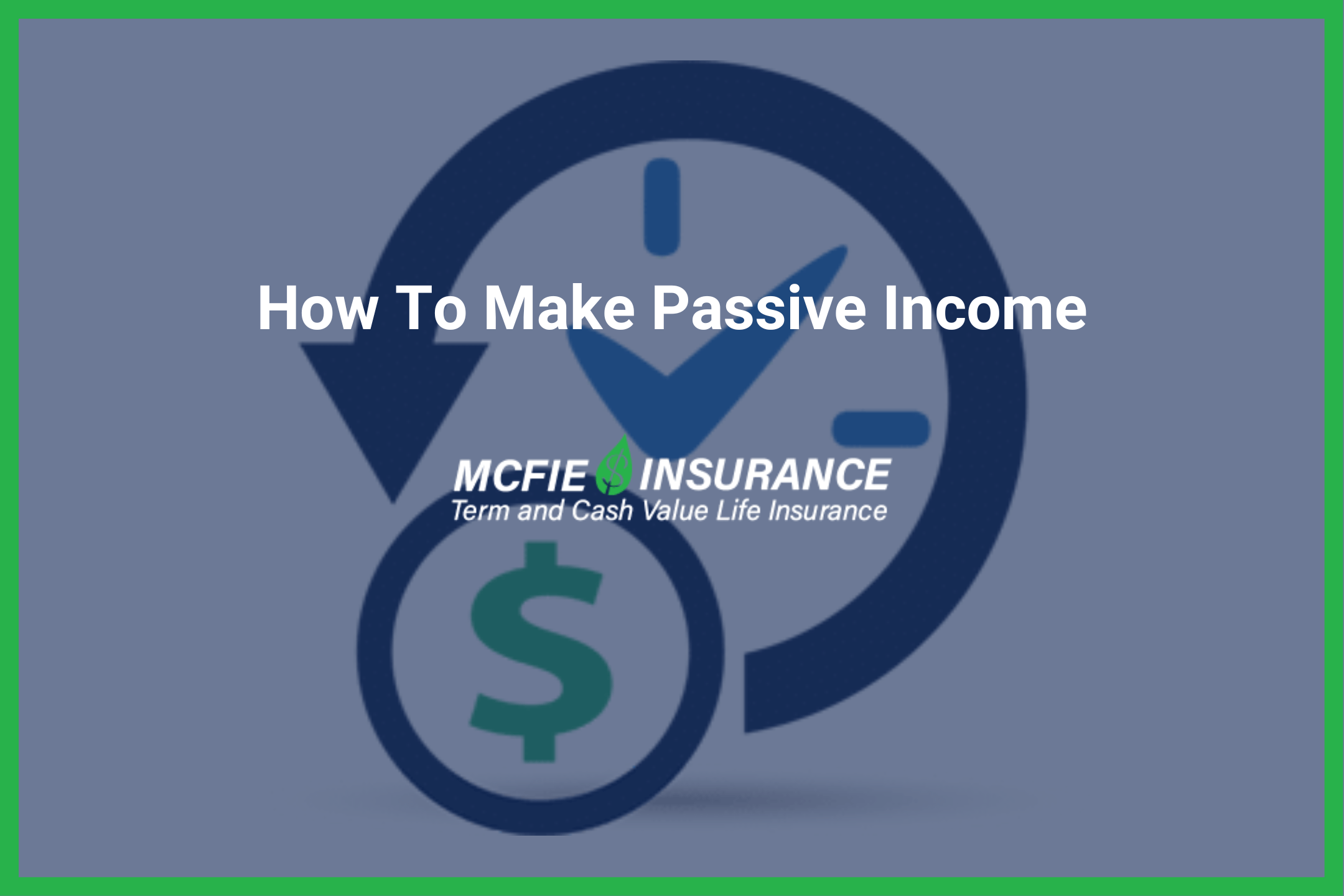702-660-7000
702-660-7000

Passive income can be an extremely important strategy when building your wealth and planning for retirement. Passive income ideas are a dime a dozen, but not all passive income ideas work equally well for everyone.
Passive income can be defined as regular earnings from a source that requires little to no effort on a regular basis. Passive income can include things like annuities, bonds, and dividend stocks. Active income, on the other hand, is income that does require work or input from the income-earner on a regular basis.
 57-page slide deck
57-page slide deckMany people are losing money with typical financial planning. Even people who were "set for life" are running out of money in retirement. Here's an easy guide with 3 things you can do to become wealthier.
Download here>
Here are 10 passive income ideas that can be used to generate income:
1. Content
relatively new passive income idea is content creation. Google, Youtube, Instagram, Snapchat, TikTok, and other platforms have made it possible for content creators to monetize their content producing active income, and furthermore… to continue to earn income from that content on an ongoing basis. This is where the “passive income” is realized. Among other things, passive income content can include:
All of these “passive income ideas” will require active involvement at least in the beginning.
2. Dividend Stocks:
When you think of the best passive income investments, which are also well-known, dividend stocks are near the top of the list. Buying dividend stocks is a passive income idea that requires minimal effort. The upfront investment is necessary. Dividend stocks may tend to be less volatile than growth or high-risk stocks, but this is not always true.
3. Dividend Index Funds & Exchange Traded Funds
Dividend index funds and exchange-traded funds (ETFs) may be a better option over dividend stocks because they can be more diversified and don’t require you to pick individual stocks, which may limit your portfolio based on the amount you’re investing. You can read more about the different types of investments available using the link provided.
4. Bonds
Bonds are generally considered safer than stocks. Rather than invest in a part of a company, bonds allow you to lend money to companies or government entities and provide you with an interest-based return. When deciding between bonds vs. stocks, it’s important to consider your asset allocation, risk tolerance, and potential profitability.
5. CD Ladders Or High-Yield CDs/Savings Accounts
Another “safe investment” option includes CD ladders, high-yield CDs or savings accounts which can provide a relatively small but steady passive income stream for those with low-risk tolerance. This passive income idea requires an investment upfront and pays interest over time. Read more about safe investments here.
6. Useful Household Item Renting
Some people have turned useful household items into a profitable source of passive income. A less conventional, but still profitable passive income idea, this option utilizes helpful assets you already have, that other people might need for a short time. This could include items like lawnmowers, tents, power tools, large coolers, folding tables, etc. Although this can provide passive income, there will be some active involvement and monetary investment required by the owner to manage the rental items and to provide for repair and replacement as necessary.
7. Real Estate Investment Trusts
Real estate investment trusts, commonly called REITs, are a passive income idea that allows people to invest in real estate without owning a specific property and being responsible for property upkeep and other items. REITs buy real estate (including office buildings, retail spaces, apartments, hotels, etc) with investors’ money and pay a dividend to the investors. By pooling investor money, they act similar to mutual funds but in the real estate space. Some REITs are also traded publicly on the stock market.
8. Rental Properties
If you’re looking to fully commit to a real estate investment for passive income and have the capital required, rental properties can be used to generate passive income. There are many factors that must work in harmony for a long-term rental to produce passive income. Proper planning, good property location, and good renters are three things that increase the chances of earning net passive income from a rental property. There are many factors that can easily make a rental property a cash flow drag; property maintenance, bills, and taxes are certainly on this list.
9. Annuities
Annuities are a product issued by insurance companies that can provide passive income through monthly payments. There are a few different types of annuities including fixed guaranteed, variable, and indexed. In its simplest form, an annuity accepts a lump sum of money and guarantees a certain periodic payment to the annuitant for a specified time or even the rest of the annuitant’s lifetime. Annuities do require an investment up front, but it could be argued that guaranteed fixed annuities are the safest passive income money can buy.
10. Life Insurance
A well-designed participating whole life insurance policy is another option to provide future passive income. You may be thinking the cash value will become significant enough to allow a person to withdraw it as passive income at some point. This is true, and beyond that, it can also be rolled into an annuity at a future point so passive income can be realized in the form of annuity payments for the rest of the annuitant’s life. You can also use life insurance to “cover” other income-producing assets like an annuity, 401(k), etc. which we will consider further below
While having one or more passive income streams is a great way to build wealth faster over time, you’ll also want to consider the tax implications of these extra income streams. Because of tax liabilities, many people choose to invest their passive income through a retirement plan like a Roth IRA or a 401(k). There are pros and cons when it comes to a Roth IRA vs. 401(k). While both a Roth IRA and a 401(k) can provide tax-advantaged savings, there are annual limits to how much money you can contribute. Additionally, there are access limitations and early access penalties that can cripple you financially if you want to use this money prior to age 59 ½. This is where a well-designed whole life insurance policy can come in to provide more flexibility and options.
Using life insurance to “cover assets” in an annuity means using the life insurance death benefit to replace the value of assets used to purchase the annuity if you happen to die before receiving at least a similar amount in income. See an example of how you can accomplish this through our video here.
Using life insurance in your passive income strategy can also provide you with a buffer against market volatility. As we all know, the market cannot always be relied upon. If your stocks perform poorly or inflation goes up dramatically at an inconvenient time, your passive income could be at risk of becoming decreasing or even disappearing. Using life insurance cash values to help with cash flow during volatile times can provide a volatility buffer for your financial needs.
At McFie Insurance we design and sell life insurance that gives people proper protection so they can keep more of the money they make, grow their wealth, and have financial peace of mind. If you would like to talk with us about protecting passive income with life insurance please schedule a strategy session. Call 702-660-7000.
 by John T. McFie
by John T. McFie
I am a licensed life insurance agent, and co-host of the Wealth Talks podcast.
At age 14 I started developing spreadsheet models and software systems to help my Dad share financial concepts with clients.
Skipped college at 17 recognizing the overinflated value and prices of most college degrees and built more financial software instead (see MoneyTools.net). Still a strong advocate of higher education without going to college. I enjoy making financial strategies clear and working through the numbers to prove results you can count upon.